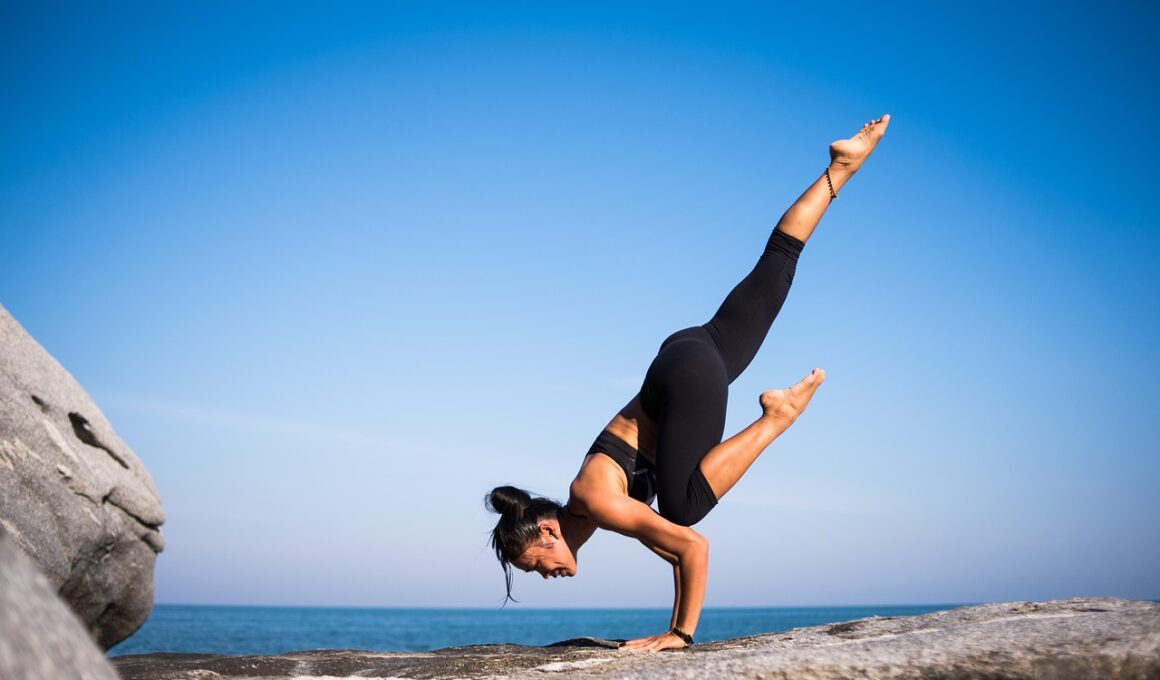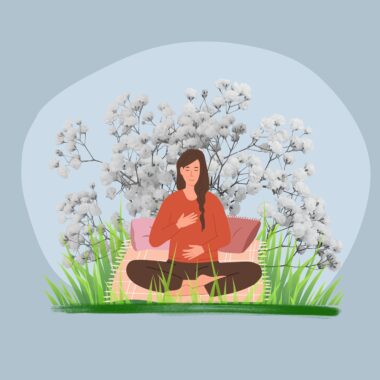Mastering Breath Control for Enhanced Stability
Breath control plays a crucial role in enhancing balance and coordination. By learning effective breathing techniques, individuals can significantly improve their physical stability. Your breath supports your core muscles, stabilizing the body during various physical activities and movements. Developing a harmonious connection between breath and movement can enhance performance in sports and everyday tasks. Engaging in activities such as yoga and martial arts can provide a solid foundation for these breathing techniques. By systematically practicing breath control, one can curb anxiety and foster a sense of calm. These practices indirectly promote better coordination as the body learns to respond more adaptively to various movements. Mastering breath control can also enhance fitness levels, as it allows individuals to engage in longer workouts without unnecessary fatigue. Additionally, the focus required during breath control builds mental acuity, reinforcing the mind-body connection further. Ultimately, a consistent practice in breath control can yield impressive benefits, transcending physical strength. Embrace these techniques, and commit to incorporating them into your routine for a balanced, stable lifestyle.
Understanding the various breathing techniques is essential for achieving maximum benefits. There are several methods to explore, each offering unique advantages. One of the most recognized techniques is diaphragmatic breathing, which focuses on deep inhalation through the nose and complete exhalation through the mouth. This technique is beneficial because it encourages full oxygen exchange. When practiced regularly, it enhances lung capacity and improves pulmonary function, which is essential for better athletic performance. Another effective technique is alternate nostril breathing, an ancient practice that balances the body’s energy. By using your fingers to close one nostril, you inhale deeply through the other. Then switch to exhale and repeat. This practice can help focus your mind, leading to improved concentration, essential for mastering complex movements. To further enhance balance, practices like the 4-7-8 technique can help regulate your breathing pattern, ultimately calming the nervous system. Proper breath timing during exertion situations is crucial for maintaining physical control and enhancing muscle performance. Bringing awareness to your breath allows for greater integration between mental and physical activities.
The Importance of Breath Control in Sports
In various sports, breath control is not merely advantageous, but often essential for peak performance. Athletes develop specific techniques that align their breathing with physical exertion. For instance, distance runners utilize rhythmic breathing to synchronize their breath with their strides, enhancing stamina. By inhaling and exhaling at specific intervals, they increase oxygen intake and maintain energy levels during long runs. Swimmers also benefit greatly from breath control, often practicing inhalation through the mouth while executing their strokes for maximum efficiency. Likewise, cyclists focus on breath timing to optimize their performance during high-intensity intervals. Activities like martial arts combine breath control with movement to generate power while executing techniques. Controlled breathing not only aids in stabilizing the body but also helps in managing adrenaline and stress levels during competitive situations. Strength training requires synchronized breathing for effectively lifting heavy weights and maintaining form. As athletes become more aware of their breath, they can foster greater control over their movements, leading to improved balance and greater achievements. Training to enhance breath control can hold the key to a significant edge over the competition.
Incorporating breath control into daily routines can yield profound benefits. Awareness of our breath can significantly impact mood states and mental clarity. Practicing breath control when faced with daily stressors can ground us, allowing for better management of overwhelming feelings. Simple techniques, such as mindful breathing for a few minutes, can help create a moment of calm in chaos. Beyond immediate stress relief, these habits can promote a long-term sense of mental stability. Furthermore, developing a consistent breathing practice can enhance overall well-being and emotional balance. Practitioners often find it easier to navigate daily challenges with a more centered perspective. Techniques such as guided imagery combined with breathing can enhance focus and visualization abilities, ultimately enriching personal achievement. As your breath becomes more intentional, your mind can uncover deeper layers of mental resilience. Moreover, a foundational understanding of breath control can enhance communication skills and express desires more effectively. This integration serves as a holistic tool, bolstering both physical performance and mental fortitude. Learning to breathe purposefully is thus an essential skill for enhancing balance in life.
Breathing Exercises for Improved Coordination
Specific breathing exercises can be directly linked to better coordination. One excellent exercise involves taking slow, deep breaths while performing coordination activities. For example, try balancing on one leg while inhaling deeply and exhaling slowly. Focusing on your breath creates a sense of stability, allowing the brain to sync up body movements with breathing patterns. This reinforces muscle memory and enhances the efficiency of physical actions. Another beneficial exercise is the ‘four-square’ breathing technique. Inhale for four counts, hold for four counts, exhale for four counts, and hold again for four counts. This rhythm encourages a deeper state of relaxation, leading to increased focus and improved fine motor skills. Additionally, practicing yoga poses that incorporate breath control can offer advantages for overall body awareness. As you transition between poses, matching your breathing with movements heightens both physical and mental coordination. Over time, practicing these exercises consistently will lead to a noticeable improvement in overall balance. Pay attention to how your body feels during these exercises, as updates can lead to personal breakthroughs in coordination.
Tracking progress in breath control is essential to gauge improvement over time. Keeping a journal where you document experiences and breakthrough moments can be handy for reflection. Describe how breathing techniques impact your balance during various activities. Taking note of specific exercises, outcomes, or challenges encountered can further solidify your understanding. Sharing experiences with your peers can also be valuable, as it opens up discussion regarding effective strategies. Joining workshops or classes can provide exposure to new techniques and variations that may enhance your current practices. By measuring progress, individuals can remain committed to refining their breath control skills. Consider technology integration for a more analytical approach; heart rate monitors and fitness apps tracking breathing rates may serve valuable data for improvements. Engaging in consistent self-reflection after workouts can reinforce the associations between breath control and balance. Set realistic goals for mastering each technique incrementally. Celebrate achievements, no matter how small, to encourage motivation. All these deployment strategies contribute to a more focused and tactical approach toward enhancing your breath control for improved stability.
Conclusion: Integrating Breath Control into Everyday Life
In conclusion, mastering breath control is vital for improving balance and coordination. By integrating various techniques into daily life, everyone can enhance their physical abilities and overall well-being. It is essential to practice breathing exercises consistently and remain aware of how they affect physical performance. Embrace the journey of exploring different breathing techniques to discover which one aligns best with your personal style. Set aside dedicated time for these exercises, ensuring to remain engaged and focused on breath coordination. By simplifying breath control into your routine, you will cultivate physical stability along with mental clarity. Benefits may extend beyond mere performance, as one finds peace and focus in today’s chaotic life. A strong foundation based on breath control can lead to greater advancements in various physical pursuits. Ultimately, instilling this fundamental principle promotes a balanced approach, applicable to daily activities. Through diligent practice and exploration of breath control techniques, improved stability and coordination will naturally emerge. Your commitment to this journey will foster a greater understanding between body and mind, resulting in extraordinary physical achievements.
In conclusion, mastering breath control is vital for improving balance and coordination. By integrating various techniques into daily life, everyone can enhance their physical abilities and overall well-being. It is essential to practice breathing exercises consistently and remain aware of how they affect physical performance. Embrace the journey of exploring different breathing techniques to discover which one aligns best with your personal style. Set aside dedicated time for these exercises, ensuring to remain engaged and focused on breath coordination. By simplifying breath control into your routine, you will cultivate physical stability along with mental clarity. Benefits may extend beyond mere performance, as one finds peace and focus in today’s chaotic life. A strong foundation based on breath control can lead to greater advancements in various physical pursuits. Ultimately, instilling this fundamental principle promotes a balanced approach, applicable to daily activities. Through diligent practice and exploration of breath control techniques, improved stability and coordination will naturally emerge. Your commitment to this journey will foster a greater understanding between body and mind, resulting in extraordinary physical achievements.





